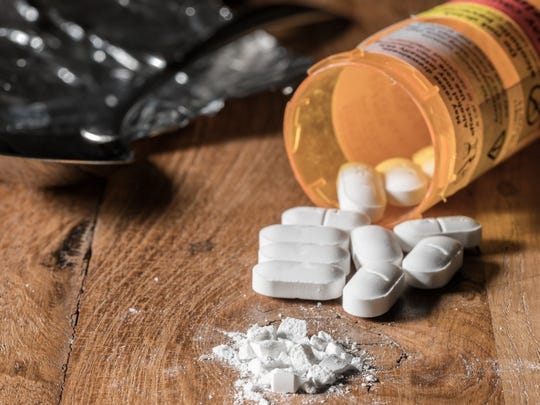Google Maps brings 'follow' feature to iOS
"Follow me on Google Maps," this handsome baker seems to say.
Franziska & Tom Werner/Getty Images
Google Maps now lets iPhone users keep tabs on their favorite businesses. The "Follow" feature started rolling out to iOS on Wednesday, the search giant said in a blog post.
Simply search for a business in Google Maps, whether an old favorite or a new bakery, and tap Follow. You'll now be able to see updates about the location, learn about upcoming events, discounts and more.
The navigation app added the follow feature to Android last October. Alerts for followed businesses appeared in the For You tab.
Around the same time, Google Maps added a way to find out about, and follow, businesses opening soon.
Now playing: Watch this: 6 ways Google Home helps you cook
1:55
Google combats opioid epidemic through providing disposable locations on Google Maps
Google is launching a new effort in the fight against the nation's opioid crisis.
The tech giant is partnering with the Drug Enforcement Administration, the Department of Health and Human Services, CVS, Walgreens and state governments to display local drug disposal locations in Google Maps.
By entering searches such as “drug drop off near me” or “medication disposal near me," users will be able to find permanent disposal spots at local pharmacies, hospitals or government buildings to dispatch of unneeded medication. The program will start with 3,500 locations nationwide.
"By bringing opioid disposal site information to Google Maps, Americans are only a search away from helping to address the opioid crisis," HHS Chief Technology Officer Ed Simcox said in a statement. "This type of consumer empowerment – providing easily accessible data – is the kind of innovation needed to improve healthcare."
Retail solution: Walmart takes on opioid crisis, offering free solution to safely dispose of unused meds
Curbing prescriptions: CVS to limit opioid drug prescriptions amid national epidemic

For more than half a decade, the United States has seen an incredible rise of an opioid epidemic within its borders. According to a recent study, drug makers and federal regulators are the ones to blame for this crisis. (Photo11: BackyardProduction / Getty Images)
Disposable locations can be important in fighting the opioid crisis, which claimed more than 49,000 lives in 2017 due to overdoses because they prevent others from getting ahold of medication. According to the National Survey on Drug Use and Health in 2016, 53 percent of respondents indicated that they "obtained the last pain relievers they misused from a friend or relative."
Google is the latest company working to fight the opioid crisis. In 2017, CVS announced would limit opioid prescriptions in an effort to combat the epidemic. Moreover, Walmart took several measures in 2018 to hinder opioid misuse, such as providing a way to dispose of unneeded medication and placing a limitation on how much medication it will supply.
Follow USA TODAY intern Ben Tobin on Twitter: @TobinBen
Read or Share this story: https://www.usatoday.com/story/money/2019/02/21/google-combats-opioid-epidemic-showing-disposable-locations-maps/2936714002/
Google Maps can now guide you to drug disposal locations
Last year, Walgreens and CVS Health added hundreds more prescription take-back kiosks to their drugstores around the country. And earlier this year, the White House Office of National Drug Control Policy recommended expanding drug disposal sites. Google claims it will continue to add additional locations and statewide data to Google Maps.
The update builds upon the web-based locator it unveiled last year as part of the DEA's National Prescription Drug Take Back Day. Google claims that with the help of the tool, the DEA and its local partners collected a record 1.85 million pounds of unused prescription drugs in 2018.
"Every day, over 130 people in this country die from an opioid overdose...and the majority of prescription drug abuse (53 percent) starts with drugs obtained from family and friends," Dane Glasglow, VP of product, Google Maps, said in a blog post. "That's why Google wants to help people get rid of their leftover pills that are sitting in people's medicine cabinets.
No comments:
Post a Comment